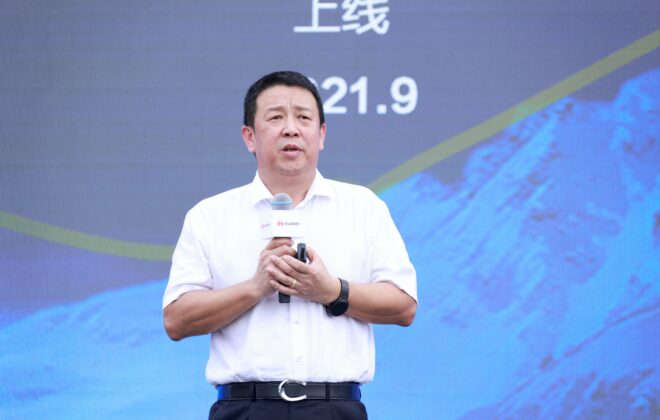CANTO Weekly Newsletter – BNamericas: 05/30/14
Dominican Republic telco regulator aims to expand access, reduce costs – Dominican R.
C&WC sees mixed results across Caribbean, Panama markets in FY14 – Regional
Motorola betting on FM radio, price to sell Moto E in Latin America – Regional
Guatemalan court upholds controversial telco law – Guatemala
Alcatel-Lucent opens IP lab in Brazil – Brazil, Regional
The information presented and opinions expressed herein are those of
the author and do not necessarily represent the views of CANTO
and/or its members.
Dominican Republic telco regulator aims to expand access, reduce costs – Dominican R.
Dominican Republic telecoms regulator Indotel announced a series of measures to reduce internet costs and expand access to telecom services in a country where only 14% of homes have internet subscriptions.
Indotel president Gedeón Santos said the regulator was going to submit recommendations to congress to remove internet taxes, news website Diariode3 reported.
The regulator is also working with telecom providers to lower internet costs and expand access for low-income people. Ideally, internet service would cost 600 to 700 pesos (US$14 to $16) a month, Santos said.
One of those measures is the recently launched Bonodigital program, which in its initial stage is providing low-cost PC financing to 50,000 households.
The program also includes computer program training and internet service subsidies, Santos said.
FIBER OPTIC LOAN, DTV CONNECTIVITY, CUSTOMER SERVICE
Santos said the Dominican Republic is in final negotiations for a US$30mn loan from the World Bank to expand fiber optic networks.
Nearly a third of the country lacks fiber optic connectivity, but the five-year project will connect areas unserved by telecom companies, Santos said.
The government is also working to meet the analog switch-off deadline, set for September 2015.
Some of those measures include an upcoming ban on analog TV imports and US$15mn that the government is spending to distribute digital TV receivers.
In efforts to improve service, Indotel is also redesigning about 200 technology centers that will become customer service centers.
“There will be a person receiving user complaints in each municipality of the country, because right now people have nowhere to physically take their complaints in communities, and when this project is finished people will have somewhere to take their complaints,” Santos said.
C&WC sees mixed results across Caribbean, Panama markets in FY14 – Regional
Cable & Wireless Communications’ (C&WC) LIME Caribbean operations saw revenue of US$1.05bn in fiscal year 2014, ended March 31, down 7% from FY13.
Panama, the company’s second largest market, realized US$591mn in revenues in FY14, relatively unchanged compared to the previous year, according to the company’s latest financial results.
Mobile revenue in Panama increased 4% to US$336mn as the company cited the addition of 317,000 subscribers behind prepaid activations for data plans on new smart devices. Broadband and TV revenue in the country rose 7% to US$64mn.
Fixed voice and mobile revenue in the Caribbean totaled US$252mn and US$531mn, respectively.
CWC’s total revenue reached US$1.87bn, a 3.6% decline against the previous year, while the company reported net profits – including gains from the sale of assets – of US$951mn. Profits before exceptional items were US$148mn, up 45%.
Ebitda rose 5% to US$608mn.
Pro forma net debt is now US$205mn, giving the company more leeway to increase investments in Latin America and the Caribbean, C&WC said.
Motorola betting on FM radio, price to sell Moto E in Latin America – Regional
Motorola Mobility is betting on the inclusion of the FM radio function as well as price to ensure success of its new Moto E 3G smartphone.
The company launched the phone in Chile on Thursday for 79,990 (US$145), a prepaid price which Fernando Sánchez, Motorola Mobility Chile’s general manager claims will put the phone at a significant advantage against the competitor it most closely resembles in terms of specs, the Samsung Galaxy Core, which costs almost double the price.
The Moto E is expected to complement Motorola’s range of phones that include the higher end Moto X that costs US$580 and the mid-level Moto G priced at US$180 and now Motorola’s best ever selling phone.
According to the company, 70% of phone users worldwide have basic phones with restricted or non-existent access to the internet. The global average selling price of a smartphone is US$337.
FM RADIO
FM radio is a feature that is generally included in phones aimed at emerging markets. Given spottier network coverage, FM radio enables users to keep using their phone to listen to music, sports games and chat shows, all of which are very popular in Latin America
“In Chile, radio is a companion for many people. Chat shows speak directly to the people and are more important than music. We have learned that radio is key, especially for those that don’t have data coverage,” Sánchez said.
FM radio was included in the Firefox OS phones launched in Latin America at the behest of Telefónica.
SPECS
Sánchez underscored that the Moto E provides many of the same characteristics of phones double or triple its price. The device comes with a 4.3 inch display, 23% larger than that of the Galaxy Core and at 256 ppi, 55% clearer than its rival, he said.
He also highlighted the battery life, which lasts all day, a 5mpx camera and the latest version of Android 4.4.2 Kit Kat.
Guatemalan court upholds controversial telco law – Guatemala
A Guatemalan court has ruled against suspending a controversial telecoms law approved last month.
The constitutional court said it was upholding all 12 articles of the law that were challenged on May 6 by indigenous peoples, who say the law violates telecom and property rights and municipal autonomy, news website Siglo21 reported.
The court has yet to rule on another appeal filed last week, also by indigenous groups.
On April 8, congress received, debated and approved in just a few hours a 17-article law to strengthen telecoms infrastructure and control signals in prisons.
But the law, which took effect on April 25, prompted a backlash by indigenous groups, municipalities and SMEs, who say the legislation favors just three companies – Tigo, Claro and Movistar – by giving them too much authority to install transmission towers, posts and cabling on public and private property.
Under article 4, companies with at least 6,000km of fiber optic lines in place or with 100,000 or more access lines can ask telecoms regulator Sit to install certain infrastructure on both public or private property.
The institute of national problems (Ipnusac) wrote in a publication this month that the new law would waive easement requirements for those three companies.
“Articles 10 and 14 of the law give companies that need to install data transmission infrastructure broad discretion to access individual property,” Ipnusac wrote.
However, Sit director Eddy Padilla said there has been much disinformation surrounding the law.
“Many people think that a carrier can arrive at any place or private property and install a tower, but that’s not true,” Padilla was quoted as saying by Siglo21. “The law is very clear, since if the carrier does not provide the contract with the property owner, we can’t issue any authorizations.”
Critics also say the law undermines municipal authorities by giving Sit sweeping powers to issue telecom infrastructure permits, removing the authority once held by municipalities.
The national municipalities association (Anam) told BNamericas that the new law “criminalizes mayors” by requiring them to comply with Sit decisions and imposing large penalties and prison sentences of up to eight years for hindering municipal telecoms infrastructure from being installed.
The telecoms law also harms SMEs and future investment, according to Ipnusac.
“The fact that the requirements to participate in the data transmission business can only be met by no more than three companies means an obstacle for smaller companies to participate and develop in the sector,” Ipnusac said.
For its part, the industry chamber said the law affects free competition by favoring only certain companies, local daily La Prensa Libre reported.
The indigenous groups’ appeal is not the only one. Last week, the Guatemalan association of indigenous mayors and authorities (Agaai) also appealed 14 articles of the law, requesting certain environmental provisions and reduced penalties for noncompliance.
Alcatel-Lucent opens IP lab in Brazil – Brazil, Regional
French telecoms equipment manufacturer Alcatel-Lucent unveiled Monday in Brazil a laboratory for the testing and certification of transport internet-protocol (IP) networks.
The equipment, installed in the company’s Latin American headquarters in São Paulo, supports the growth in data traffic seen in carriers’ networks.
The facility is expected to serve clients from other Latin American markets as well, Javier Falcon, Brazil country leader, told reporters at a press conference.
“With the level of network growth, we needed to bring the technology closer to our customers. The advantage here is that we can test the networks before implementing them,” Falcon said.
Alcatel-Lucent invested US$4mn to set up the first phase of the lab. A second phase, focused on the routing of IP networks, is projected to be completed by year-end. Since the opening of its Executive Briefing Center (EBC) in São Paulo, total resources allocated to the center amount to US$9mn.


